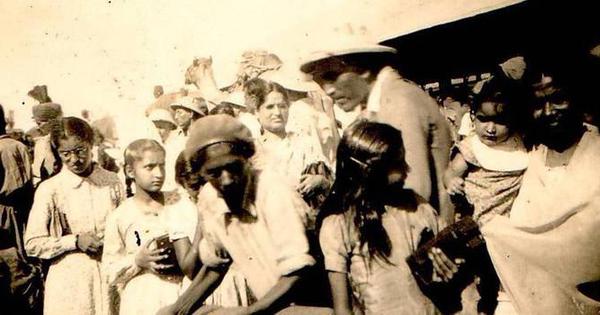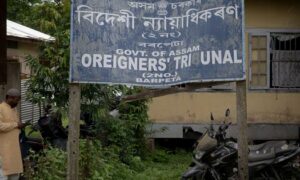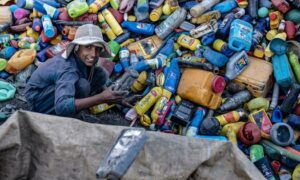
The Partition of India took place on August 15, 1947, and I was out of Karachi on September 6, 1947. My maternal uncle, Dada Chander, owned a dry dock in Karachi, where ships could be repaired and made seaworthy. A liner from Australia made a stop at the dockyard for repairs. Dada happened to mention this at the dinner table. At such troubled times, this was like a godsend, a one-in-a-million chance to get all the young girls out of the troubled country to the safety of India.
Sindhi Amil girls were considered pretty and stylish, and Sindhi Muslims always said, “We will kidnap the hooris of Sindh.” The Amil community implored Dada Chander to ask the ship’s captain if he would take such a “precious cargo”.
The captain declined. He said the stop at Karachi was unforeseen and imperative as the ship needed repairs urgently, otherwise, he had no authority to stop at any Oriental port. In view of the situation, the captain was asked to take permission from his office in Australia to make a slight detour and take as many young girls as he could accommodate to Bombay. Permission was granted. Other passengers were informed of the delay in reaching their respective destinations, and the hooris of Sindh left for Bombay, carrying with them the family jewels and important documents to a safe haven. Most of the girls, young brides and pregnant ladies, left for Bombay under the pretext of visiting family and friends, not realising that they will never again see their homeland.
We were the fortunate ones who had friends to look after us. I cannot recollect who my co-passengers were as this was my first trip on board a ship, and I was so seasick that I did not leave my cabin. Also, the sorrow of separation from my parents put me into a deep depression. Sita Shivdasani (who later became my sister-in-law), Dada Hassa Shivdasani and Bhabhi Radhi, his very elegant wife, came to receive me at the docks.
Those who were inland, i.e. in Hyderabad and other districts, had to rely on the railways. Most of them just crossed the border and settled down in Kutch, Bhuj, Gujarat and other places in the Bombay Presidency. Many had nowhere to go. They were looted at the stations and the border guards of Pakistan became rich overnight. Some came only in the clothes they had on them and had to survive in refugee camps hastily set up by the Government of India. A family of five would be given only one blanket, one tin mug and one tin plate. Whether they used it for ablutions or as a drinking vessel was no one’s concern. Families were often separated from each other and if enquiries were made with the concerned officer, he would fly into a temper, little realising that these were people who had given up everything so that the Indian side of the country could celebrate.
The camps were damp, dark and dirty, most of them on swampy land. Young girls had to go long distances to use the common toilets. Malaria and diarrhoea were rampant but the will of the Sindhis and Punjabis was strong. Their motto, as mentioned earlier, was “Never say die! Up man, and try.” Music united the families and brought smiles to their lips. They were hard-working people and no work was below their dignity. I think that is what made Mahatma Gandhi coin the phrase “Work is worship”.
Sindhi women were skilled in embroidery, stitching (an age-old custom was that when a young girl got married, the older married sister would gift her a sewing machine), and making sweetmeats, sherbets and pickles. So came about a cottage industry in the camps. The women would make delicacies, and the husbands and sons would go out and sell them at nominal prices.
As demand grew, so did the variety and price of the products. The smaller children would go out in groups to nearby railway stations and sell homemade candy, pocket combs, pencils. If customers had no change and the children were told to “keep the change”, it would touch them on the raw, and the latter would reply, “I am selling goods and not begging. I will be here at the same place and you can make good on the money.”
From the bottom of the graph they rose, unschooled but successful businessmen, professionals and philanthropists to boot. Today, some of the best schools, colleges, and hospitals in Bombay have been started by Sindhis. I have never known a Sindhi to say “I can’t do this”. The word “can’t” does not exist in their dictionary. Nor would they ever say “This is below my dignity.” Their heads have always been held high.
Excerpted with permission from Sindh Bani: An Anthology, Sarla Kripalani, Rupa Publications.
📰 Crime Today News is proudly sponsored by DRYFRUIT & CO – A Brand by eFabby Global LLC
Design & Developed by Yes Mom Hosting






